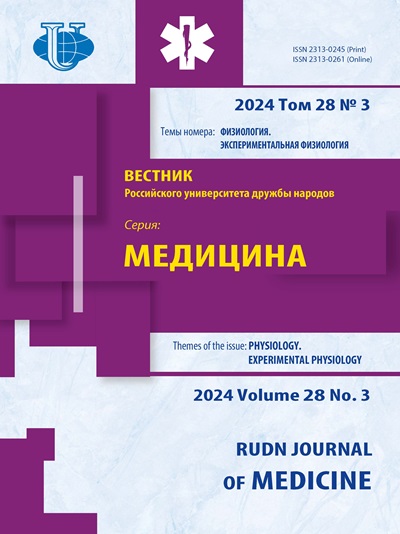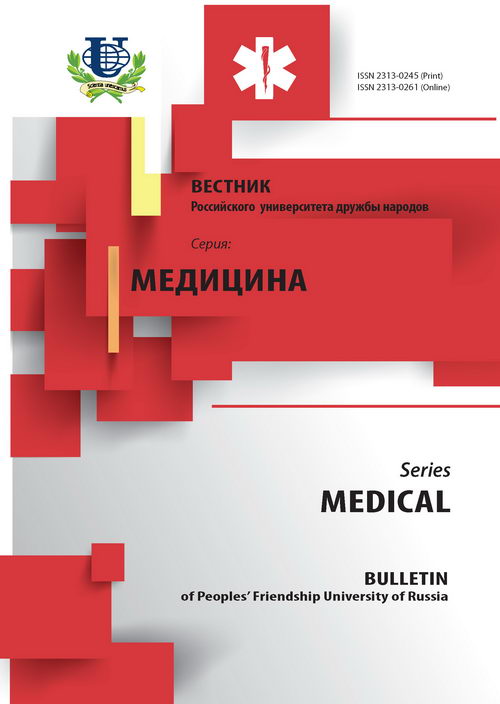Показатели кардиотокографии плода на фоне плазмафереза у беременных с плацентарной недостаточностью после экстракорпорального оплодотворения
- Авторы: Буранова ФБ1
-
Учреждения:
- ФГУ «Научный Центр Акушерства, Гинекологии и Перинатологииим. академика В.И. Кулакова Росмедтехнологий»
- Выпуск: № 3 (2010)
- Страницы: 82-87
- Раздел: Статьи
- URL: https://journals.rudn.ru/medicine/article/view/3513
Цитировать
Полный текст
Аннотация
В целях определения состояния внутриутробного плода и контроля эффективности проводимой терапии проведен сравнительный анализ показателей кардиотокографии (КТГ) у 60 беременных после ЭКО и ПЭ с хронической формой плацентарной недостаточности на фоне различных методов лечения. Средний возраст пациенток составил 34,6 ± 4,2 лет, срок гестации - 32-40 недель. В контрольную группу были включены 20 женщин с физиологическим течением беременности, в среднем возрасте - 29,7 ± 2,1 лет (p < 0,05). Результаты работы базировались на данных клинического наблюдения, лабораторно-инструментальных исследований, включая методы КТГ и допплерометрии. Для сравнительной интерпретации полученных данных и оценки эффективности проводимой терапии беременные основной группы были разделены на 2 подгруппы по 30 пациенток в каждой. Беременные 1-й группы в целях лечения ПН принимали общепринятое комплексное лечение: инфузии актовегина, инстенона, метаболическую и иммунокоррегирующую терапию. Беременным 2-й группы наряду с общепринятой терапией в программу лечения ПН были включены сеансы лечебного плазмафереза (ПА), дискретным способом. Средняя продолжительность лечения составила 14,2 ± 1,8 дней. Анализ показал, что включение лечебного ПА в комплексную терапию ПН у беременных после ЭКО и ПЭ, позволило добиться нормализации показателей КТГ, улучшить перинатальнее исходы, снизить риск развития ДВС-синдрома и пролонгировать беременность до сроков оптимального родоразрешения.
Ключевые слова
Об авторах
Ф Б Буранова
ФГУ «Научный Центр Акушерства, Гинекологии и Перинатологииим. академика В.И. Кулакова Росмедтехнологий»
Email: bfbdoctor@gmail.com
ФГУ «Научный Центр Акушерства, Гинекологии и Перинатологииим. академика В.И. Кулакова Росмедтехнологий»
Список литературы
- Афанасьева Н.В., Стрижаков А.Н. Исходы беременности и родов при фетоплацентарной недостаточности различной степени тяжести // Вопросы гинекологии, акушерства и перинатологии. - 2004. - Т. 3. - № 2. - С. 7-13.
- Ветров В.В., Лукина Е.Л., Долженкова Н.Л. Эфферентная терапия в акушерском стационаре // Эфферентная терапия. - 2005. - Т. 11. - № 2. - С. 53-59.
- Гусак Ю.К., Морозов В.Н., Шевченко Ю.Н. и соавт. Новые возможности в лечении плацентарной дисфункции // Гинекология. - 2005. - № 10. - С. 77-80.
- Игнатко И.В., Демидович Е.Д. Принципы терапии плацентарной недостаточности для коррекции нарушений ренальной гемодинамики плода // Вопросы гинекологии, акушерства и перинатологии. - 2007. - Т. 6. - № 6. - С. 25-31.
- Кулаков В.И., Орджоникидзе Н.В., Тютюнник В.Л. Плацентарная недостаточность и инфекция // Руководство для врачей. - М., 2004. - С. 494.
- Новикова С.В., Краснопольский В.И., Петрухин В.А. и соавт. Фармакотерапия плацентарной недостаточности с учетом изменений внутриплацентарного кровотока в процессе лечения // Материалы 12-го Росс. нац. Конгресса «Человек и лекарство». - М., 2005. - С. 201-202.
- Перфильева Н.В. Особенности течения и исходы беременности у женщин после применения вспомогательных репродуктивных технологий // Проблемы репродукции. - 2003. - № 5. - С. 45-46.
- Радзинский В.Е., Милованов А.П. Экстраэмбриональные и околоплодные структуры при нормальной и осложненной беременности. - М.: ООО Медицинское информационное агенство, 2004. - С. 393.
- Poikkeus P., Gissler M., Unkila-Kallio L. et al. Obstetrik and neonatal outcome after single embryo transfer // Human Reproduction. - 2007. - April 1. - 22 (4). - P. 1073-1079.
- Welsh A.W., Humphriesk, Congrove D.O. et al. Developments of three-dimensional power Doppler ultrasound imaqinq of fetoplacental vasculature // Ultrasound Med Biol. - 2001. - Vol. Sep 27 (9). - P. 1161-1170.
















